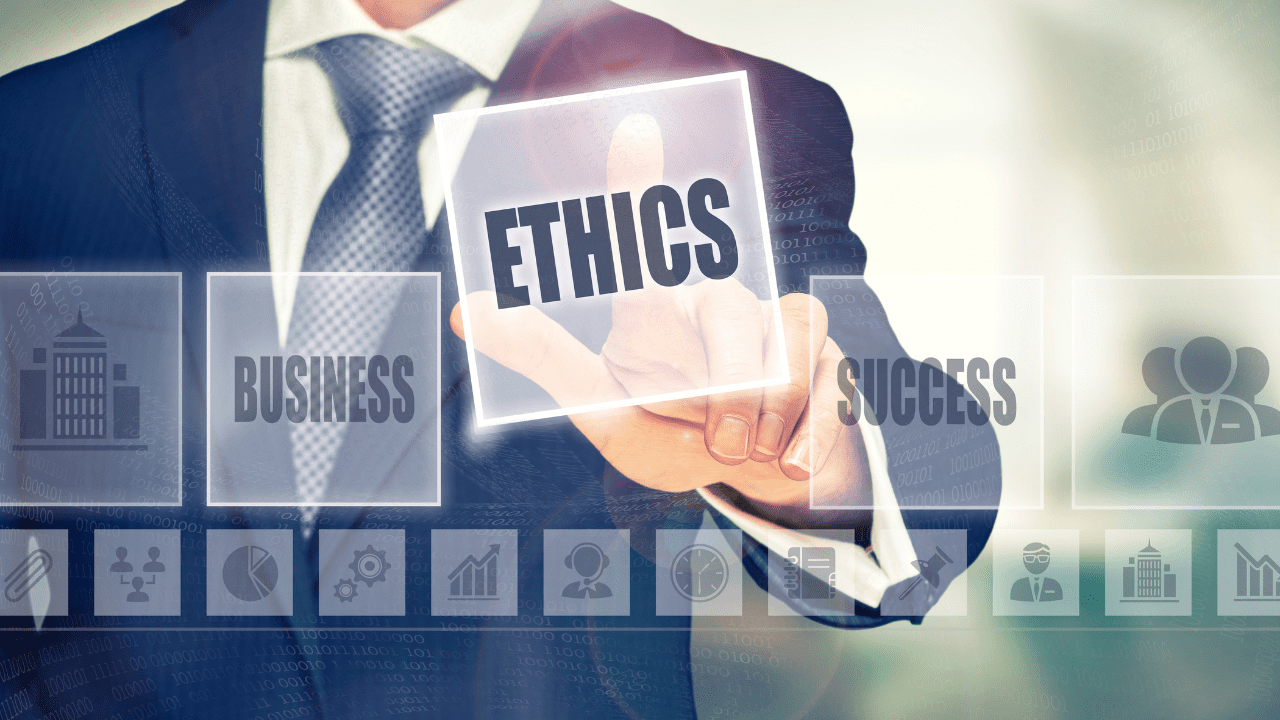
No one enjoys being on the receiving end of a business that manipulates or pushes you into buying something. Good business is about relationships where you are authentic, engaged, and building trust. Today’s guest is Scott Stratten. Scott is an author, podcast host, and an award winning keynote speaker. He is known for his energy, passion, knowledge, humor, and his man bun. His live and virtual presentations bring UnMarketing to life, energizing attendees, and creating experiences audiences will remember and learn from.
“I’m not passionate about marketing. I’m passionate about people.” - Scott Stratten Share on XShow Notes:

- [1:30] – Scott’s inspiration for starting UnMarketing was frustration. He explains his background and how he moved forward into entrepreneurship.
- [3:58] – In business, Scott saw the “buy or bye” mentality and believes there’s a better way.
- [5:27] – It isn’t about tactics. Strategies don’t take into account the human factor.
- [6:53] – “I’m going to say what I think and I’m going to say it without a filter.” A lot of people are afraid of this for polarizing the market.
- [8:13] – Scott shares the story behind the domain name for UnMarketing.
- [11:01] – The kindness of the person who originally owned the domain name believed in Scott’s brand.
- [13:04] – Many companies continue to manipulate people to buy.
- [14:04] – In marketing, if you lie, nobody knows.
- [15:49] – Scott shares the story of catching a company in a lie.
- [18:32] – The internet can’t work in a way without trust.
- [20:09] – In over 300 episodes across six years on the Unpodcast, Scott has never run out of material.
- [23:31] – Business decisions must be ethical and Scott calls people out for unethical decisions in their business.
- [26:31] – If you have the endless pursuit of more, you don’t appreciate what you have now.
- [29:38] – Scott has been presented with many opportunities but he couldn’t serve too many audiences well and authentically.
- [33:39] – There is a difference between what is legal and what is right.
- [36:13] – A lot of companies believe they own their employees. Employees are an asset, not overhead.
- [37:18] – Scott shares the story of an experience when consulting and a technique called Stop, Start, Continue.
- [42:04] – After 20 years in this field, Scott continues to be shocked that people don’t realize how they are supposed to treat others.
- [45:01] – Scott recently revamped the UnMarketing website to better show what it is about and to ensure that it is presented authentically.
- [46:29] – A newer phenomenon in business is that younger generations are coming in with better skills in tech.
- [48:31] – Be wary of those who say something isn’t working anymore because they are likely selling an alternative.
- [49:27] – Scott personally responds to newsletter email responses and you can sign up for his email newsletters from UnMarketing.com.
Thanks for joining us on Easy Prey. Be sure to subscribe to our podcast on iTunes and leave a nice review.
Links and Resources:
- Podcast Web Page
- Facebook Page
- whatismyipaddress.com
- Easy Prey on Instagram
- Easy Prey on Twitter
- Easy Prey on LinkedIn
- Easy Prey on YouTube
- Easy Prey on Pinterest
- UnMarketing.com
- UnPodcast
Transcript:
Scott, thank you so much for coming on the Easy Prey Podcast today.
 Chris, you go on a podcast and you're like, “Oh, I'm happy to be here.” I'm actually happy to be here. I actually really am and shout out to you, first of all, for whatismyipaddress.com. I saw that on the list talking about the show and I'm like, “This guy, I need to hang out with him right now.” Thank you for having me on the show.
Chris, you go on a podcast and you're like, “Oh, I'm happy to be here.” I'm actually happy to be here. I actually really am and shout out to you, first of all, for whatismyipaddress.com. I saw that on the list talking about the show and I'm like, “This guy, I need to hang out with him right now.” Thank you for having me on the show.
That is so incredibly kind of you. I appreciate that. I've been a fan of yours along with my wife, and I just love the concept of your authentic marketing. Can you kind of talk about how you got involved in marketing? What's the backstory?
Shout out to your wife. Thank you so much. I appreciate all fans. It's just so weird to have any, first of all, because I'm a guy with a beard and a man bun that yells a lot, so it's really nice.
UnMarketing, the actual concept started out of frustration, like most things in my life, and just get so bent out of shape about stuff you're like, “OK, screw it, I'll do it,” and you just start doing it. It actually came about where one of the two corporate jobs that I had before realizing I'm just not going to make it in the corporate world working for somebody. I do believe the word entrepreneur is Latin for a bad employee, and that was me to a tee.
For the four years, I lasted two years in downtown Toronto in HR—if you can believe that—then two years as a national sales training manager. I flew around North America training people how to sell bubble wrap. I'll repeat that for the listeners that didn't catch that. I flew around this continent, training people how to sell air. I learned a few things doing that. 
Well, it pops. You can roll around in it.
Let me tell you, the kids were all happy with dad bringing home bubble wrap, I'm telling you. It got old real quick for me. I worked with salespeople, not only our salespeople but with mostly our distributor's salespeople. We sold into distribution, then the distributors would sell inside of that to the end user and their businesses. I would be meeting with people and stuff.
I actually met one of my friends in their office. I was doing training sessions near them and I sat down with them. We were just shooting the breeze, doing the thing you do, and his phone rings. He picks it up and it was a cold call. He just berates the person on the other line saying, “You're wasting my time; my time is valuable.” You know, one of those things. We all feel this rage sometimes if we're interrupted.
Anyway, he hangs up the phone and we both kind of talk back and forth of how ridiculous it is to be cold calling just random offices. At that time, this was in 2000-2002 or so. Then he's like, “OK, Scott. I got to go. I’ve got to go do my calls for the day.” I'm like, “Jeff, what are you talking about? We just talked about how lame this was in that situation as a business development tool.” And he's like, “Yeah, but I sell something people need.”
This is his hypocritical kind of sales and marketing. I said, “Look, there's got to be a better way,” because all I was seeing was this buy or goodbye mentality in business. This kind of snapping necks, cashing checks, so you can go to the Catalina wine mixer at the end of the year for your sales incentive. It was just all about this and this alpha kind of thing, and stepping over people.
I really believe that we don’t have to take a ladder to success. I think we can take an elevator to success together. -Scott Stratten Share on XI am not a cheesy person, but I really believe that we don't have to take a ladder to success. One rung, one person, I think we can take an elevator to success together. I really think we can. I thought, “People do business with people they know, like, and trust.” That's what I gathered in the previous 20 or so years of my life learning things, and I was like, “Why aren't we doing that then?”
I set out to prove that you could build a business and businesses by building relationships and positioning yourself as an authority in front of your target markets, so when they have a need for your product or service, they choose you. That's burned into my brain, Chris. It sounded like a line that is burned into my brain, but what that is. I went and set out on that journey to kind of try to prove that.
I thought when we started doing UnMarketing and then when we got the book deal, UnMarketing came out, that it would be entrepreneurs that resonated with it because I wasn't kind to corporate marketing and things in the book, nor am I still not. I'm still not kind about it and it blew up.
Corporations bought it, entrepreneurs bought it, schools put it in their curriculums and I'm like, “This is what's telling you something, that not every tactic works for every person.” When we say do this, or best practice, or do that, you're not taking into account the human factor. The stories that people would come to me for the past decade or so after the book came out, people would vomit before doing sales calls, people would have panic attacks, people would do this.
 In 1982, if you're selling hair brushes or vacuums, you really had one choice. You're knocking on doors. Tupperware, that type of stuff, I get it. It's knives, you know what I mean? That's the type of thing. But now, a lot of times I just keep learning. It's an excuse to say you get a new person in, fresh out of school, and you just send them door-knocking. Why? Because it's lazy for you and it's hard for them, but you're like, “You’ve got to pound the pavement, you’ve got to earn your stripes.” It's such a bunch of malarkey to me.
In 1982, if you're selling hair brushes or vacuums, you really had one choice. You're knocking on doors. Tupperware, that type of stuff, I get it. It's knives, you know what I mean? That's the type of thing. But now, a lot of times I just keep learning. It's an excuse to say you get a new person in, fresh out of school, and you just send them door-knocking. Why? Because it's lazy for you and it's hard for them, but you're like, “You’ve got to pound the pavement, you’ve got to earn your stripes.” It's such a bunch of malarkey to me.
I also think cold calling can work in the right industry in the right place. If you're paving driveways and you go knock on the neighbor's door to the one you're paving and say, “Hey, we're already bringing our equipment here in two weeks. Do you want a discount?” I'd love that. Window cleaning? Awesome.
Alison, who's my co-author, my business partner, and luckily for me, my wife, had a nursing bra company. She went to stores, baby stores, and said, “Hey, I have a new product. What do you think?” When it makes sense, it makes sense. But it's not a be-all and end-all nor is it a be-most thing to me.
I set out to do that and I found that my one condition when I went out and started, I said, “I'm going to be me. I'm going to say what I think and I'm going to say it with mostly not a filter because I'm so passionate about it.” I always talk about how I'm an angry speaker on stage. It's not anger. It's passion. A lot of people are afraid to do that. They're afraid to polarize because they're afraid of a part of the market they push away. They don't look at the market they attract stronger that way.
I'm not everybody's cup of tea, I get that. I'm not my own cup of tea half the time, but I know that the people who do hire me back when I was doing consulting and things like that, knew what they were going to get and they got it.
It's the same thing now. My business now is just speaking at conferences and stuff. It never usually happens where I'm done and they're like, “Well, that wasn't what I expected.” You know what you're getting with this man bun Gandalf showing up at your event. You're going to get somebody who has an edge to him but speaks the truth, at least according to me. And it's worked out so far.
You told me that there's a story behind the unmarketing.com domain name. What's the story behind that?
One of my favorite things about even talking to you right now—I don't get to tell a story a lot, but it's really important as a fellow geek and especially the one who came up with your brilliant site, you'd really appreciate that. I went to get unmarketing.com because it was going to be the name of the company. I came up with a name because I thought it would look really good on a book cover, and I think it does.
I went and said, “OK, unmarketing.com.” This is back in 2000. I don't live with regrets, usually, but I wish I picked up a couple more domain names in ’95-’96 and just kind of sat on them for a while instead of waiting for my JPEGs to load of women or something, a girl in a bikini, or a wrestler I like from the 80s or something like that. I could have just registered cars.com and then retired.
 I went to get on unmarketing.com and it wasn't available. I'm like, “All right, I registered un-marketing.com.” Then I also inquired the person who had it because it was just an error page. Back then we didn't have parked pages back then. It was just like, “This doesn't exist.”
I went to get on unmarketing.com and it wasn't available. I'm like, “All right, I registered un-marketing.com.” Then I also inquired the person who had it because it was just an error page. Back then we didn't have parked pages back then. It was just like, “This doesn't exist.”
It's broken.
Yeah, so I went into the registration information, found out who the contact was—again, much easier back then—and I just emailed the person. I said, “Hey, this is the company name I came up with and I would love to buy the domain if you're not using it.” He wrote back and he's like, “Hey, well I kind of had some plans for the future.” One of those things.
Everybody has got plans.
Everybody has got plans. As a 100-plus domain owner myself, I got plans. But he says, “I could probably give it up for $1000.” I was just coming out of college. He might as well have said a million and I'm like, “Well, thanks anyway, and good luck with whatever you do with it.”
I went with un-marketing.com. As you can understand, right now as you're listening, anytime I was on the radio or podcast, I would have to say, “Un hyphen,” but not the word hyphen, a dash, but not D-A-S-H, like an actual line. It was such a pain.
Anyway, fast forward five years. It’s Christmas time. A week before Christmas. I get an email from GoDaddy. It just says, “Your domain has been transferred.” I look and I've been given ownership of unmarketing.com. I'm like, “What is happening?” I checked my email and there's an email from the guy who owned it afterward. He says, “Hey, Scott. I could have sold this domain recently for five figures. I realized that the only reason this domain is worth anything is because of the brand you've built in the past five years on it. Merry Christmas.” He just handed me the domain.
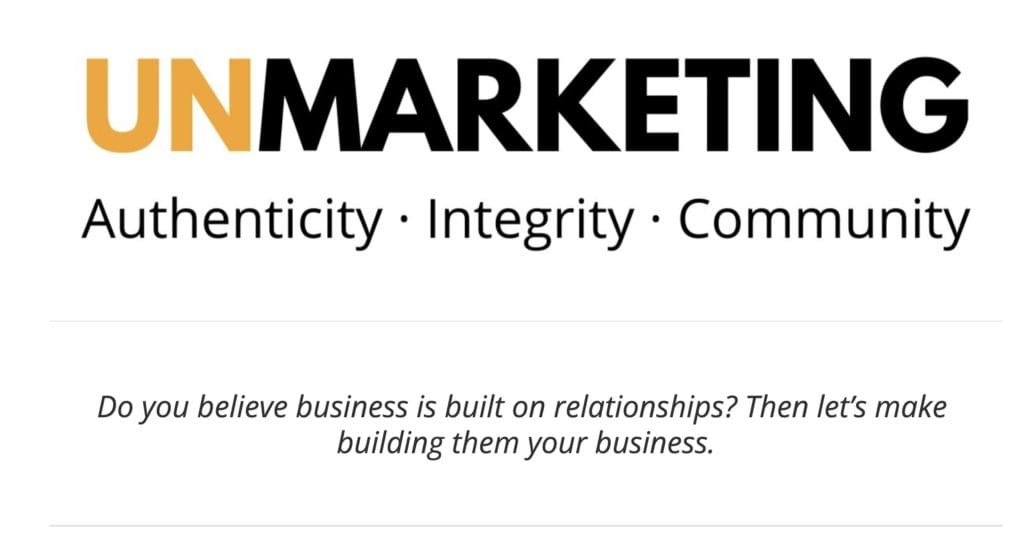
It's like the Christmas story came on the TV and snow started falling. I'm like, “Santa’s real.” For me, people would say during that five-year period, they're like, “Well, why don't you go and try to make a claim on it or something?” I'm like, “No. They registered. That’s theirs.” I never trademarked UnMarketing. I don't plan on trademarking UnMarketing because that becomes part of your job: enforcement.
It's hilarious when people would say, “Well, T-Mobile came out and they're the un-carrier.” They're like, “You should go.” I don't own un. I don't own the two letters for it, but I've made a brand around it. That was just a testament to saying, “Look, that's how I do business, which is that's right, you do a handshake, you do what's right, and it's all power to you.” I was so floored that I was given it by him. It also gave me that indication that it's just the right thing to do. If I never got it, it's still the right thing to do, or make a better offer once you have more money.
Do you think he gave it to you because of what you've done with the brand? Because of the principles that you teach?
I think that had a lot to do with it. Also, it was the fact that he mentioned in the email was the value that was created because of the brand I had built, but also, I never went after him. He said, “You never tried to claim it. You never did a trademark type of thing or any of that type of stuff.” Please, I apologize for the French I'm about to use, but he says, “I wish you were more of an asshole.” That was the ending of his email, because then he could have sold it within good conscience. That's what he said. I'm like the one time I'm not, that's good. That makes me so happy.
You're passionate about marketing in a way that resonates with people and connects with people. What are companies doing to kind of not do that? What are they doing to manipulate and like, “We're just going to try to force the sale”?
I'm not passionate about marketing, honestly. I'm passionate about people. -Scott Stratten Share on XYou just used the word right there: to manipulate. It's funny because we put out six books. The three uns are unmarketing, unselling, and unbranding. They're all the same thing. I'm not passionate about marketing, honestly. I'm passionate about people. There are just different ways to go about those, and marketing happens to be the thing I have a real good knack for.
I just found that I don't think ethics are a renewable resource. I don't think you get to re-up every quarter, depending on if you hit your goal or not. I think that when we compromise things like that, not only do we compromise our own ethics, if we're in a leadership position, we compromise our team's ethics. That lasts for a very long time because you compromise your team and that's not a leader. I don't think a leader is a title. I think leadership is a verb. I think it's a John Maxwell line, but it's fantastic, exactly how I feel. That's it, though. You'll never forget that.
Ethics aren’t a renewable resource. I don't think you get to re-up every quarter, depending on if you hit your goal or not. -Scott Stratten Share on XThe problem is that that's the issue. In marketing, if you lie, usually nobody even knows. In sales, if you lie, they find out five years later and you're Enron. Marketing lies don't usually come up to catch you, except we did catch a brand in a lie and they got in trouble for it years ago. It's on the un-marketing.com blog.
We had one where I woke up five to six years ago, lying in a bed. I do what geeks do back then and I just kind of opened up the App Store. I just wanted to see what was trending. My old world about viral, why things trend, and why people jump into things, and I saw that. I'm in Canada and our big main legacy phone provider here’s Bell. I saw that their app in the AppStore was number one or two, which was weird because this was the Farmville and the Candy Crush boom. I'm like, “How is this beating these addictive games?” I can't stand those games and I know why they work and they're brilliant, but I was defending them. How does a Bell mobile app take the top?
I start looking at it and I'm reading it. It has 4½ stars with 100 reviews. Now, Chris, I know you know this. You have to know. The only time you leave a review for apps is when you hate it, usually. It's like Yelp. You don't go to restaurants, say I ordered a burger that's like […]. Bought a donut, he ate the donut, didn't need a receipt, and didn't need a review type of thing. 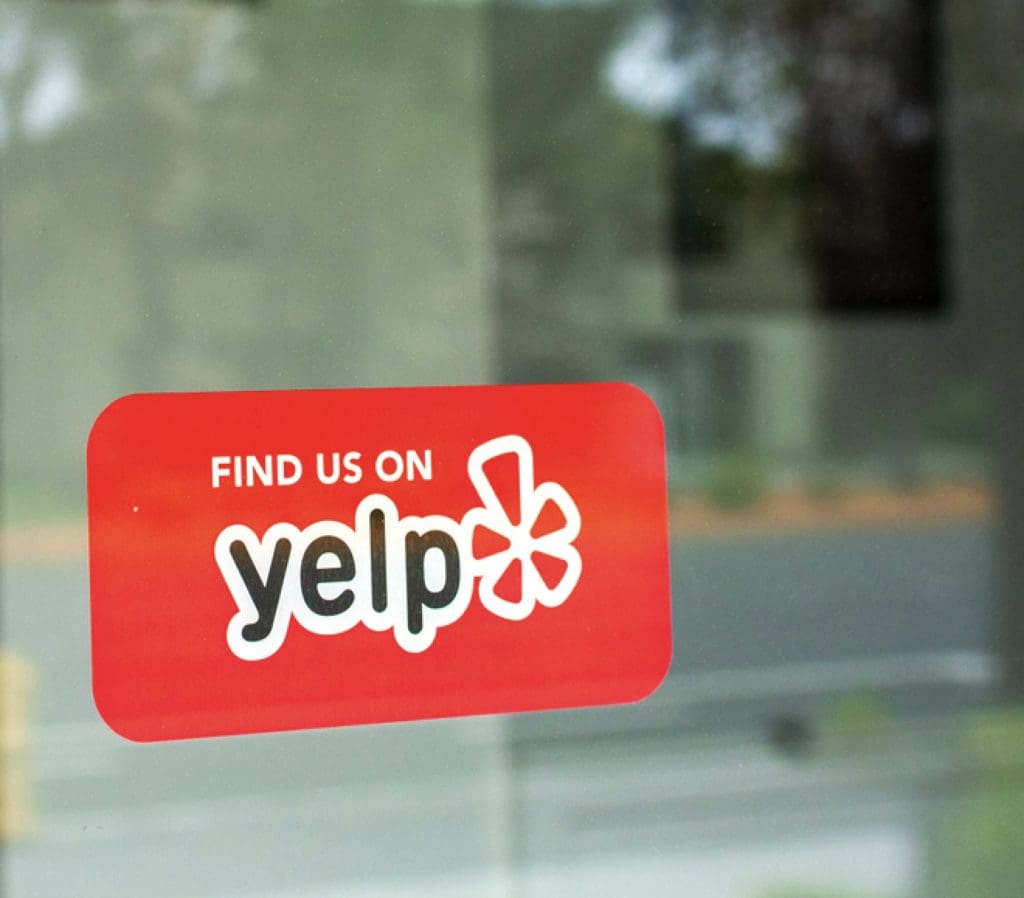
I said there's no way because the app lets you look at your bill. I've traveled the world speaking, and the only thing that I know that bonds humans across this planet is they hate their banks, their phone companies, and their airlines. That is the bonding thing across every person I've ever met around the world.
I started reading the reviews. I'm like, “They're so glowing.” Canada has one of the highest data fee rates for mobile in the civilized world. Nobody's happy with it. I knew this was […], so I started reading the reviews. I'm like, “These sound like marketers. Marketers don't talk in human language, talking marketing speak.” So, I said, “No.” I cross-referenced these reviews and I found them on LinkedIn. They're all Bell employees.
I, as a good Canadian, just let it go. I'm kidding. I wrote a blog post and I called it For Whom the Bell Mobility Tolls, which is the greatest headline I have ever come up with in my life. I will never beat it. I just wrote, “Look, because it's astroturfing. You can't do that because I believe that.” I put the blog post out there. It went nuts. It went viral around the world and the Canadian Competition Bureau launched an investigation. I did it all, by the way, without wearing pants. I was in bed. It was amazing. This goes up, it blows up.
A year later, I'm on the train going into Toronto heading to a Blue Jays game, which actually ended up being the 2015 playoffs, where the famous Batista backflip game against the Rangers. I'm on my way to that one. My phone rings. It's a reporter. I love that reporters call me when stuff hits the fan. I just met […] I've come up with, and they're like, “Hey, Scott. We’re wondering if you have a comment on the Competition Bureau's ruling.”
I was surprised by this because I don't know if it's the same where you are, but when our Competition Bureau launches an investigation, that's usually the end of the investigation. They came out and they made a ruling. There were two things that came out. One, they had to send all employees for ethics training, and I'm like, “Do they need a speaker? I could do it.” Two, they were fined $1.25 million.
The first comment I got on the blog post, the first one was two words. All it says is, “Who cares? It's just an app. Who cares?” I said, “I do.” I think the Internet, as we say the World Wide Web back in the day, I think that's a web spun of trust. I really believe that.
My first time getting on the Internet was in 1995. I saw it and I just said this is the greatest thing I've ever seen. Then I printed out every single page I looked at because I thought the internet would be turned off. I still have the binder, by the way, including the 242 pages of the Monty Python Holy Grail script I printed out during project week in college, and I tied up the printer for a long time. I got in trouble, but it was worth it. I would do it again.
I think that the only way the Internet works for us in a good way is if it's trusted. We have to trust it. -Scott Stratten Share on XI think that the only way the Internet works for us in a good way is if it's trusted. We have to trust it. Yelp reviews only work if we trust them. Business reviews only work if we trust them. The one thing that really ticked me off about this whole Bell thing was that they didn't need to do it. You don't have a choice. They have almost a dual Monopoly with them at Rogers in Canada nationally.
Look, if I'm a Bell customer, I'm going to download the app anyway, but they wanted to do some vanity metric, something that they wanted to see, some team, and their whole team got in it. Now all their names are attached to it, and it's not renewable. I really believe right now, too, that people will remember how we behave in a crisis long after it's over and there are a lot of notes being taken. There are a lot of receipts being held onto right now and I am all for this. As Alison said about me, I've never seen a mutiny I don't want to join, and that is 100% true.
People will remember how we behave in a crisis long after it's over -Scott Stratten Share on XIt makes sense to have an app to check your bill, but why did they care?
They wanted to get an award. We can do a whole day talking about marketing awards, that whole thing too.
All those ones you have to pay for?
It doesn't end. Our show is called the UnPodcast, the business show for the fed up. I think we did 320 episodes over the six years. Every week, we come out and we just never had a lack of material. We never had a lack of material. We never had one show that we said, “I think we're out.” It's always something. It's always, “I know another example that happened.” 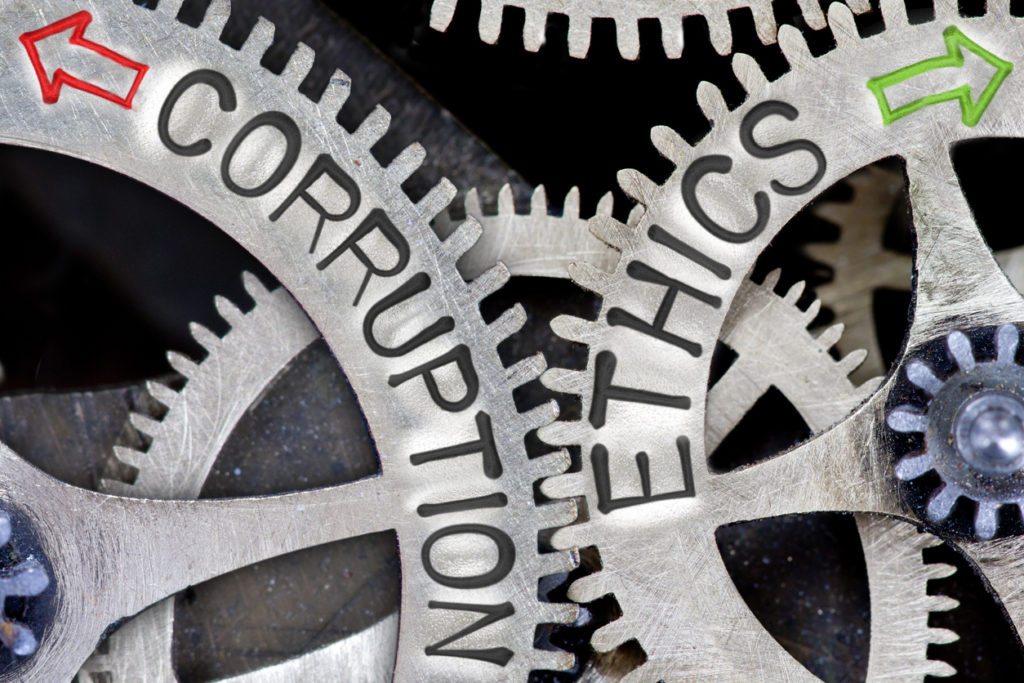
In my world, professional speaking, somebody had said, “Hey, check out this speaker,” because I'm like the bouncer. This guy shouldn't be doing this. One of the speakers had put in his bio that one of his books was nominated for the Pulitzer Prize, and I know this person. I think you could win a Pulitzer if they save the world. There's no way. Plus, things like the Pulitzer, any kind of those types of awards that are because you helped humanity?
Nobel Prize.
Nobel Prize, the Pulitzer, those are sacred. I won't be in the running for any of those. Those are sacred. I found out that for $35, you could submit your book for nomination for the Pulitzer. You can't call yourself a nominee unless you're on the shortlist, because anybody can do it so I confronted them. I said hey, “I don't see your book on the Pulitzer lists in any of the years. What happened?” It's like, “Oh, no, my publisher nominated me.” OK. One, you can't put that somewhere. Two here's the best part, you are going to love this. The book is self-published.
Wait, you have a publisher and it's you?
Nominated them was himself. Now he no longer claims it because I said, “Look, you take it off or you're my next topic.” I have no time. People think they're going to be unethical or maybe […] unethical. That's how you do it. I doubt it, but that's how you do it. It's a slap in the face to every war journalist, to every humanitarian, to people who just work their ass off to make the world a better place to tell the stories that need to be told. The book was about YouTube or something. Just brutal. I'm like, “No, not on my watch.” If we don't call people out on this stuff, that's why they do it because that comment on my blog post, “Who cares?” I do.
It's interesting. There are so many things that we list that we think have value and that because someone's on these lists that we think, “Oh, it must be good.” I know like the operating process for The New York Times Bestselling authors is you just go out and buy a whole bunch of copies of the book yourself.
Go to the results source and have them do it for you. I know. People that I know in the industry, they’re The New York Times bestsellers, and it was bought, they spent a quarter of a million on it, and they can walk around and say it. People are like, “Well, it’s a business, and you get higher consulting fees.” I'm not talking about a business. I'm talking about an ethical decision.
I get it. It's tempting. I wanted to hit the list with the first couple of books. By book three, four, five, six years, I don't care at that point, but I get it. You play the game. I have a bio with a lot of accolades in it. The New York Times this, but I've been in The New York Times multiple times. That's the real time when you should have a comment saying, “Who cares?” Because I don't. I get bored when I hear my bio in an event. Back when I started my career and knowing what I wanted to do, you did things for the bio. That's what we'd say: Do it for the bio.
You take the client, Walmart wants me to speak at their head office, but they only have a third of my right, do it for the bio. Go to Bentonville, Arkansas, and do it for the bio. That's where that type of stuff is. I understand it, but it has to be true to me. There has to be that truth because then nobody wins. You might win in the short-term, but word gets out. It's a small world, especially when I'm spreading the word.
Yelling from the rooftops.
I will, and I won't stop. It's something that's ingrained in me. I really look at one of the striking things for unmarketing and the business stuff. I hate bullies. A lot of times, bullying in business is popular. Bullying in businesses admired the Jack Welch way of doing things—the chainsaw. Just cut it all down, get your bonus, go away, and cool. That's not the world I want to live in.

Yes, it doesn't help. It doesn't raise every boat.
I don't understand the endless pursuit of more, no matter what, and I'm very fortunate. I'm very privileged. I'm very lucky with where I am in my career now, but I've never had this thing of growth. For me, it was about passion. First, it's about providing. If you get past that point, it's about passion. It's about doing what I've wanted to do—the speaking thing since I was 12. I'm so lucky to be living my dream and realize I'm in it when I'm in it.
I had dinner at a house when I was in Germany for an event. How cool is that? Just saying that, by the way? I got to go to Germany to be paid to speak. It blows my mind. We were sitting with another speaker friend, and we were having schnitzel and a stein of beer outside because you got to do that. I had just hit one of those rungs in speaking and revenue for the year, and he's like, “Awesome. What's next?” He puts his hand up with that chart climbing up. I just grabbed his hand and I flatlined his arm. I said this: “I just want to do this for the rest of my working life.” He's like, “But you want to be up?” I said, “Don't have that in me because when you just have the endless pursuit of more, you never see what you have today.”
When you just have the endless pursuit of more, you never see what you have today. -Scott Stratten Share on XYou're always focused on, “How do I make tomorrow better” as opposed to, “How do I enjoy today?”
I got a house, I can get a bigger house. I got a car, I can get a newer car. Not my phone, I just got a newer iPhone so I can't claim I'm good at that, but still.
You take your wins and your losses. We always joke about we don't want a bigger house. That just means more cleaning.
It just means more cleaning. Exactly. We're on the other end of it for us too. We're getting to the point where the kids are all starting to—we have now 15-24—go and do their own thing too. It's fascinating to be a parent at this point during a pandemic and seeing them change and grow, but also that I'm able to be here.
I've been on the road for most of my life. I go to the event, that's the one downfall and a plus, sometimes, depending on what it is. Now, especially after this pandemic and everything, it just changed my brain. I just want to be here. I still go do gigs; I still want to do that. I still love that. It's my passion. Before, it was a necessary evil. The road was necessary for me. I never got stressed when I did it.
Now, I just went to a gig and I came home. Now, when I go, I just want to come home. There's a drive saying, “I want to do this gig, but I do want to get home.” It's certainly a change and I'm very lucky. I realized that at the age I am now.
It's really fortunate when you can do what you like to do and it supports your family. It's an amazing combination.
I think everything in business is a combination of luck, timing, skill, and effort. -Scott Stratten Share on XI know it's rare and that's why I know how lucky I am with that. I think everything in business is a combination of luck, timing, skill, and effort. I just think when all four of them fire, it's beautiful, and when three of them do, you can do well. It's taking that risk, that belief in myself, that little bit of insanity that all entrepreneurs have, and that blind ignorance of, “We can do it.”
One of my favorite things about entrepreneurs is I really love this series, How I Built This, the NPR series, Guy Raz podcast series, and he talks about these founders, the founder of Five Guys, and Spanx and all the stuff. Almost the common thread through all of them was, “I'm so glad I didn't know then what I know now because I never would have started the business.” That little bit of naive kind of, “I didn't know I wasn't supposed to do this type of thing.” I like that. That's a wonderful, motivating thing for me because I still don't know what I'm doing.
I like the stories where people weren't planning on building an empire. It wasn't like, “Yeah, I want to own a chain of 5000 restaurants. That's my goal in life.” I was like, “No, I just want to make a good burger.”
Yeah, “I just wanted to make a good burger with good ingredients, and now we have 4000 locations. I don't know what happened.” Exactly. For me, it's been interesting because there've been a lot of opportunities for me. When you build a following, when you build a brand like this one, there becomes these opportunities for it.
I've always weighed it out by saying, “How much work is this going to be? How much work do I tie myself into long term? What do I want to do?” I used to consult and speak. By the way, it's the best way to get clients, up in front of them, in an audience, as an audience, but I couldn't serve both audiences well.
You're consulting and you're on the road. There are always distractions, there's always a problem. Plus, I didn't like it. So I was able to decide, I just wanted to speak. I became that, and I'm one of the few people that only does keynotes at conferences and that's it. I don't do training, workshops, break […], consulting, I don't own an agency, and that is very fortunate to be able to do that.
Part of that is because I can speak, I don't get nervous, and I've never gotten nervous. That's not a skill. That's just a missing synapse in my brain. That's how I got through college. That's how I got through high school. It was my ability in front of a room and BS. I'm very lucky with that. If you have a skill and most people don't, and you get paid for it, that's the meaning of life for me.
If you have a skill and most people don't, and you get paid for it, that's the meaning of life for me. -Scott Stratten Share on XI have one of those skills where five minutes before I'm up in front of an audience of four people, that I'm just utterly nauseous and ready to say like, “Why in the world am I talking to these four people?”
I was a college professor at my college here, Sheridan College, for seven years. One of the classes I got to teach a few times was communications, and part of that was presenting. I was given the curriculum, and the rubric, and all that stuff. I'm just like, “I don't know what this stuff is. Like, should I look at this stuff?” They're like, “Yeah, here's this and you're able to teach.” I'm like, “I read this and teach him how to write a memo.” I'm like, “How many people write memos on him?” Forget it, and I'm just like this.
The whole thing about the class was they had to do two presentations. One near the start and one near the end of the semester. Of course, everybody was just peeing their pants. They're just like, “No.” They didn't want to do it. The whole thing here is a list of topics in business and they can present on one of those topics. I'm seeing memo writing, and I just looked at it, and I just went, “Absolutely not.”
I looked at this class of 36 young adults and I said, “All right, you have to do two presentations this semester.” Everybody was like, “Oh, no.” And I said, “I promise you, you'll do great.” They're like, “What do you mean?” I said, “I'm only going to grade you on one thing. If your second presentation is better than your first.…” Then I made everybody go up and do a talk on a topic about anything they want.
 You love Xbox, tell me about it. You love cars, rock it. You love a certain movie, you love anime, talk about it. Then we talked about every presentation, every student gave good and what to improve, and what they liked, and every single second presentation was better.
You love Xbox, tell me about it. You love cars, rock it. You love a certain movie, you love anime, talk about it. Then we talked about every presentation, every student gave good and what to improve, and what they liked, and every single second presentation was better.
Then I got in trouble with the school. “That's not the curriculum,” this. And it's like, “No, I don't care.” I almost got fired every semester teaching. The first thing I was told by the person who brought me in, I said, “So what's the goal?” She said, “Just don't rock the boat.”
That's so not you.
Every semester, I'm just like, “Do these things even have paddles?” It's just back and forth because it was about the students for me. It was because they're the customer and that was the whole thing. I got off on a tangent here, but I don't have anybody to talk to down in this basement—just my treadmill. So off I go again.
Tangents are good. To me, the tangents are always the fun part of any conversation. It's the little roads that you go down where the insight, the synapses, are firing.
This is why I have slides in my presentation to keep me on topic. Otherwise, I would get to slide two and it'd be 40 minutes in. I'd be like, “Oh, no, I’ve got to cover some other things here today.”
It's almost been more of a discussion about business ethics than anything else.
You have to understand there's a difference between what's legal and what's right. -Scott Stratten Share on XYeah, but that's what I love. I really think that when I taught HR, especially when I taught employment law, I said, “You have to understand there's a difference between what's legal and what's right.” Then, so our entire discussions that whole semester was based on that point—what's right, what's legal.
That's what I do business as. Can you? Sure. Should you? That's the question. That's always the question. We are on this rock flying around this universe together. You start burning people for whatever reason, that is. It's like people just saying, “Yeah, but it's business, not personal.” Everything in business is personal.
It's your personal rule, the person that you fired.
Right. It's just a cop out. You're just letting yourself off the hook. You're changing their life. One of the reasons I got into human resources was I felt that was one of the only positions or departments in a company that could change people's lives. Unfortunately, after I got into HR, I realized their job was pretty much protecting the company, so I did not last long at al—under two years.
You change people's lives. Anytime somebody says that, that's a red flag for me. It's a red flag for me. Maybe they've been taught that or maybe it's true, whatever. Everything is personal. I don't care about companies. I don't care about brands. I care about the people there and it's all personal.
We've got such a way to deal with leadership or people just saying, “Yeah, well, you’ve got to do what you've got to do.” “Do you, though? Did you need to do that? Did you need to do this? Did you need to make sure that everybody had to come back to the office last week at your company because you felt like your kingdom wasn’t being properly respected? Enough.” People call this the great resignation, the great realignment. It's the great realization. It's the great reassessment. It's like, “Wait a second. What am I doing?”
I think a lot of people have that. I like that you're calling it the reassessment. It's much better than the resignation—that people are realizing. “This job is really stressful.” Like, “I don't need to work that hard.” The people realized, “I like spending time with my family. There are benefits to this. I want to spend more time with my family.”
Or spending time doing whatever it is you want to do. I am a pro at doing nothing. I love nothing. Alison said to me a few weeks ago, she's like, “You know what? I've never actually heard you say you're bored.” I don't get bored. I'm just content with what I'm doing, what I'm playing. I can finish this interview right now and go play some Xbox. I’ve got Far Cry 6 and I’ve got some beef with it. I’ve got to keep playing it.
I think that the problem is a lot of companies think they own their employees, and you don't. I always would tell students before they graduated, “By the way, at a job offer, you're the final decision. You decide to accept it. Never forget that. You are an asset, not overhead.”
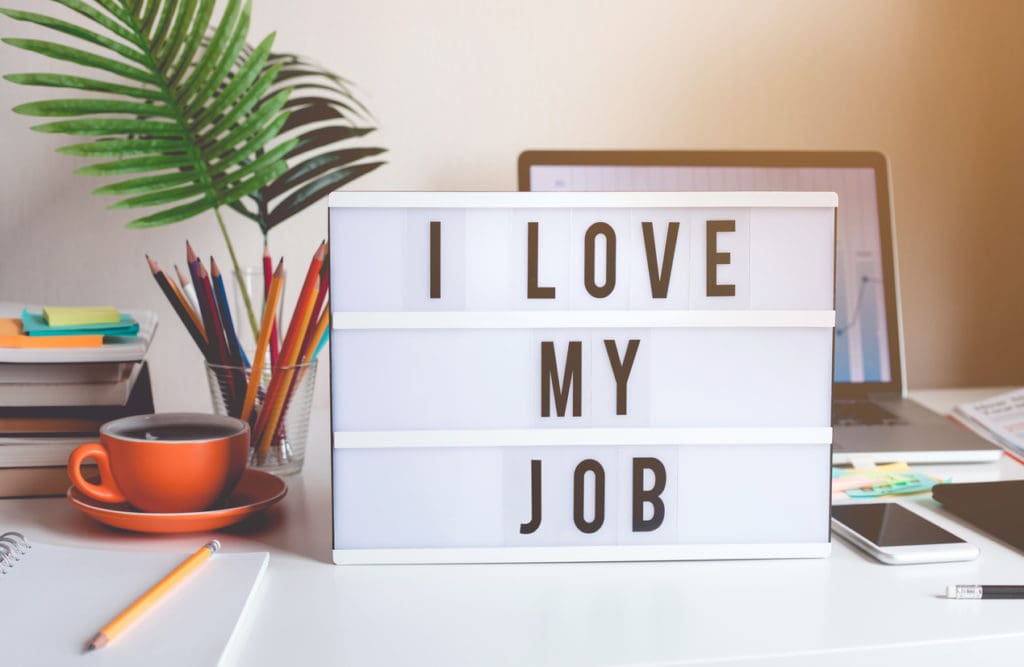
You are what drives the company, because companies will use that. There are ways to do things well, but for most companies, it's buy or goodbye for them. You can do whatever you want. These are your companies, your things, but don't have up on your wall you value your employees, they're your number one asset, and then treat them like crap. It's so hypocritical.
It's amazing to me that I had one client back when I was doing consulting. This is back when I had a company called Work Your Life. It was about enjoying the five days of the workweek as well as the two days on the weekend, because it's so ridiculously opposite of enjoyment, usually. I had this thing where I would go in and talk.
I was hired by a company up near the airport in Toronto. It was a distribution company. I went in and I met with the executives. Obviously, it was six old white guys. I sat with them around their fancy, it looks like a good $50,000 table. I sat down and I'm like, “All right, gentlemen. Give me the scoop. What's going on? What are the issues right now?” And they're like, “Oh, Scott, we don't have any problems.” And you know how I know how a company has problems?
Because they say they have no problems.
Bingo. So I'm like, “Oh, OK.” And they're just like, “Our employees are here.” He puts the hand in the middle of his face and he just goes, “We want them up here above their head. Like, make them even better.” I'm like, “You got it.” So I came up with some stuff, we scheduled with the teams, these lunches and learns, et cetera.
I returned for my first session a week or two later. I walked in, but it wasn't in the fancy boardroom this time; it was in the lunchroom for the staff, and it wasn't as pretty. It was gross. It was just gross. Anyway, I got up there. I had a flip chart. Look at me, had a flip chart. I got in there. I'm like, “All right, join this.” And nothing is landing. Nothing.
One of the things I do—you read people's faces and their body language. I mean, there's nothing landing. I just stop. I look at everybody. There are like nine people in the group and I'm like, “What's wrong?” They just stopped. Stop the program. What's wrong?
One of the employees put their hand up and said, “Hey, this is all fine and good, but when you're done today, you get to leave here.” I'm like, “Warden, can you buzz me out?” It felt like a prison. I said, “All right, forget what I was going to say today. I'm going to give you all a piece of paper, three pieces of paper each, and I want you to write ‘stop” on one, ‘start’ on another, and ‘continue” on the third. I want you to list all the things the company should stop doing, start doing, and continue doing to ensure that you cannot only work here but thrive.” And they start writing ferociously.
One guy looks up and just freezes. He looks up and goes, “We don't have to put our names on these, do we?” I'm like, “No, it's OK. I'm going to take all the things from all the sessions, and I'm going to type them up, and I'm going to put them as a group.” He's like, “Oh, OK, good. Do you have more paper?”
The secret with stops or continue with that technique is that you're hoping for a little bit of stop, start, and a lot of continue to say how you're doing. So I take everything. I do this with all the groups and it's the same vibe with every group. I just get all the stuff and I put them into binders. Then you overcharge for the binders, obviously. You just get the binder and it was like 25 pages of stop, 20 pages of start, and one bullet point for continue. The bullet point was, “Continue bringing those hotdogs at the one-time barbecue in the summer for employees. I liked them.”
I got back up into the big board room, came in with the council of white dudes, and handed them all the binders. They started looking through them. Then rumor has it, employees are saying. “You just did a survey. It's not why we brought you in, Scott.” I'm like, “Take a look.” I said, “Yeah, and I was brought in being told that you have no problems.”
That's not the case, so we start reading through them. The one guy sitting across from me who was the biggest complaint about every page turn was more violent. Then he got to the final page and just tore the page out. He goes, “This is bullshit. I think one or two things happened here,” and he points his finger right at my face. “Either they're lying or you told them to write this stuff.”
I'm sitting and I looked at him. I said, “Or, hear me out. There's a third option. This is how they feel.” Then the CEO looks and goes, “All right, I guess we're done here.” Close the binder. I leave. By the way, that's the end of the story. There's no good ending to the story, by the way. There's no sudden redemption arc to the story. They've realized it. By the way, the parting words were, “If they didn't like it here, they leave.” That was the parting shot. Yeah, the great reassessment, 100%.

I wonder how many of those people are still there today.
I hope none, I really do. Employees are assets. People are assets. People are people. I've been doing this stuff for over 20 years and it bewilders me from day one until today. People don't grasp it, but not all people. The morons don't grasp that treating people well is good. That's the whole sentence. Not good for profit, not good for a company, not good for retention. It's a good, which means better retention, better revenue, better employees. I've had somebody once say—we were at an event 15 years ago—“Show me the numbers.” He just blurted it out in the audience and I live with that stuff. I'm like, “Come again?” “Show me. Prove it to me that happier employees are better.” I just looked at them and said, “No.”
If you can't figure that out on your own, no number is going to prove it.
And if I show you a number, you'll just say something else. You don't want to be proven wrong. You now be told that people should know their place. I know what their place is and it’s hopefully not at your workplace. This stuff gets me fired up, man, I'm telling you. That's why I was so excited to talk to you about stuff like this, too. It doesn't get talked about enough.
We talk about tactics. I love split-testing, conversions, and all that geeky stuff, but if your boss is a prick, that stuff's harder. Marketing's about creation, too, and creativity. You know what kills creativity? Stress. “Prove it to me.” Really? Are you sure about that? Have you ever been stressed and then felt like drying? No, never.
I get stressed. You’ve got to hustle sometimes, you’ve got to work a late night or two. But when that's the norm and you say, “Well, you’ve got to be a team player”? Get out of here. A team over a family environment. No, that’s worse. You expect me to do everything for nothing and just deal with you no matter what because we're family? Again, they throw in a phrase. They're like, “Well, the customer's always right.” That's not the quote. The customer's always right in matters of taste.
We kill these phrases. It's like blood is thicker than water. It's not, it's not the phrase either. It's like, blood of the covenant is thicker than water of the womb. We just use these phrases, butcher them, and say, “Well, that, see? And now I'm a leader at work.”
People just put a post on LinkedIn, that freaking wolf photo of the wolf pack, and the older ones are in the front, and the alphas in the back protecting the herd. None of it's true. None of it's true. Just go read Who Moved My Cheese? Whatever. None of it's true. None. It's just a platitude. It's just this and it doesn't help. It doesn't. We can even disprove the whole alpha thing in the animal kingdom if you feel like it, but then all the alphas will get mad, so I don't want to start that another way.
That's hilarious. I don't even know what to ask next.
I really think sometimes—and I really think this is actually an important point as opposed to everything else I've said—is that a lot of brands will ask, “What do we do? How do we become these things or be authentic?” or this type of stuff. I just try to use the example of, like, we ended up just ripping down our website and totally revamping it. If you went on UnMarketing beforehand, it was Alison and I, and our faces were like, “What's up?” and all these types of things.
Now when you go to unmarketing.com, it's just like 20 statements saying, “Look, if you don't agree with these things, don't come in the door. You don't have to agree with me. It's just my opinion. I'm just making this crap up because that is what I think from experience and wisdom. Wisdom is just time plus mistakes, not better than people. I've just screwed up more and I'm trying to learn from them.”
I think that's the difference. We're better when we learn from our mistakes, as opposed to, “Well, I had it; I'm just going to keep plowing through life.”
Right. Or we start being vindictive about the mistake, or resentful about it, or self-loathing about it. We're not infallible. That's why when places ask for experience, that's what they're asking, being, “Have you made mistakes yet? Have you learned from them yet? OK, good.”
You have this weird kind of dynamic now in the workplace over the past few years that I don't think really was as predominant before. You have a younger generation coming in with better skill sets when it comes to tech, especially marketing. Tech runs now in the database, in the cloud, all that jazz and it goes around. What happens is sometimes, older employees can get pushed out of the way. If they're the supervisor, the manager, or something, they're going to do things to make sure they don't get pushed out of the way.
Wisdom has a huge value. You can learn the technical side of stuff. But understanding that behind the tech, there's people; behind the tech of the customer being onboarded, that's a human being onboarded as well. Although we could use a chat bot for this, and we could use AI for that, maybe we don't have to all the time.
It's not just about scale. Everything can't be about scale. Everything can't be about automation. I love automation. You go sign up for my newsletter, automatic welcome email. But the welcome email asks the person, “Hey, can I ask what industry you're in because it helps us tailor the newsletter.” When they reply, it comes to my phone.
Wow.
I've been using the same welcome email for almost 20 years. Every few days, I get a reply from people. Half the replies are, “I know this is automated.” And then I reply back with, “Automated is the nicest thing I've been called this month.” They're like, “Holy crap, you replied.”
That's how we start the connection. They've raised their hand to me to say, “I believe that what you're saying is something I want to read more of,” and I want to return that high five. That's cool, isn't it? Isn't it just cool? Somebody's like, “Yeah, I want to learn from you.” That's an honor. That's got to be an honor. When somebody says, “I think you can teach me something,” that blows my mind. It's so cool. And it's not even about books or anything else. It's just a newsletter signup. I'm an old school newsletter person. I still think it's the best marketing tool possible, and everything else is running around.
I got known because of social media. I can't kill it, I can't rip it. Because of Twitter, I got a book deal. Because of that, I got anything on this end of my career. But that's not what it's about for me. The gold is still in the list—a good, well-engaged list.
I have seen, “Email marketing is dead” for the last 20 years. Since this is the day after email marketing started, it's been, “Email marketing is dead.”
Always beware with those phrases because usually, the death is duly declared by somebody selling the alternative.
Yes, it's always the case.
The coroner is selling you social media tools. Always.
That is it. Gosh, we have cranked up almost an hour now.
My bad. That's good.
That's awesome. This has been a great conversation. If people want to find you online, where can they find you? Where can they sign up for your newsletter and have a conversation with you?
You can go to unmarketing.com or un-marketing.com because the hyphen still does redirect.
And it's not the word hyphen. It's not the word dash. It's actually…
You got the word hyphen, not dash. It's the line, but not the underscore line. It's the dash in the middle. Yeah, sign up and you'll see the welcome email right from that. And if you reply to it, I will come to my phone, I promise you. I will see it and, depending on your reply, I might reply back.
If you just say one word and just like, “You never wrote back” and medical is your field, I'm like, “OK, cool.” I just file it away. But if you give me any more than one sentence, I'll reply back because it's so cool.
That's it. I love that you so much value the connection with people.
What else is there? Honestly, Chris, to wrap this up, what else is there? Even at an arm's length. After this pandemic or during this still right now, I don't really want to hang out with most people in general. I'm happy where I am. I'm happy at home. Emailing back and forth people, and just have somebody from Albuquerque just signed up, and they own a franchise of four restaurants or something there. I'm just like, “How else can we ever do that?”
Yeah, cool.
So cool.
That is awesome. We’ll wrap it up here. Thank you so much for coming on the podcast today.
Again, like I said in the beginning, the pleasure was truly all mine. Thank you.
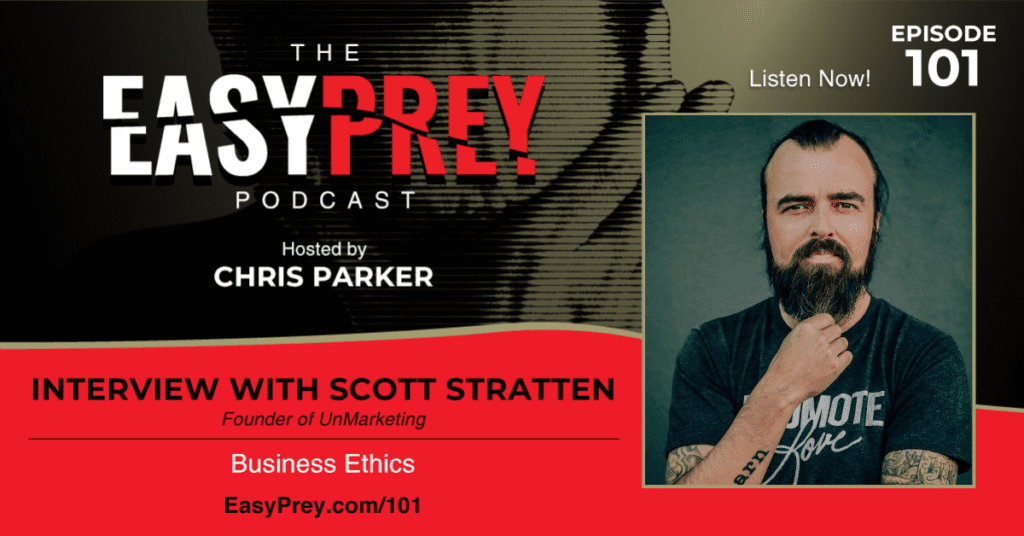

Leave a Reply